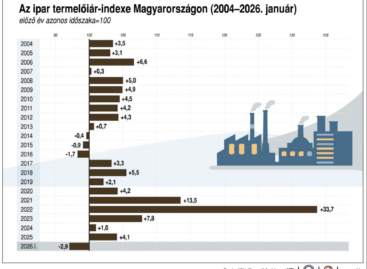Trademagazin > News and articles > Company and Personal News > Research: How different generations view social labels
Research: How different generations view social labels
🎧 Hallgasd a cikket:
Nearly half of Hungarians feel that they are often or at least sometimes put in a box, according to a recent survey of 1,400 people commissioned by McDonald’s. Social scoping – whether it’s about appearance, origin or age – affects almost everyone, but especially Generation Z, 61% of whom reported regularly facing prejudice.

From dress to body shape, we judge everything
According to respondents, the most common sources of scoping are dress and hairstyle (46%), origin (45%), and body shape or weight (also 45%). Young people are even more sensitive to this: members of Generation Z not only indicated these in higher proportions, but also age (40% vs. 31% in the total population) and gender role expectations (38% vs. 25%).
While they often feel like they are being boxed in, they often label themselves: half of 16-29 year olds admitted that they sometimes judge others based on their appearance. This duality is perhaps not surprising: young people’s lives are often about visibility, social media, and self-expression, where quick judgments are commonplace.
Conformity and self-expression
Half of Hungarian society feels that boxes limit self-expression to at least some extent. This is even more pronounced among young people: 63% of Gen Z reported that social expectations limit their ability to be themselves. This pressure is also stronger among women (52% vs. 45% of men).
The data also shows that switching between different social roles – such as student, employee, friend or family member – does not cause problems for most people. The problem arises when these roles clash: while most older people handle such situations well, only 30% of Generation Z members said that this is not a problem for them at all.
Are we hoping for change?
When asked whether social expectations will relax in the future, the majority are pessimistic: only 23% think that relaxation is expected, and 24% even believe that categorization expectations may even increase. Generation Z stands out somewhat here too – a third of them (34%) are confident that there will be freer space for self-expression in the future.
Dzsúdló and the inability to be boxed in
The research was conducted in connection with the joint campaign of the Hungarian McDonald’s and Dzsúdló. The presenter – who is himself a member of Generation Z and a role model for many young people – has built his career precisely by refusing to be boxed in. The campaign message and the research results together show: although social expectations are still strongly present, more and more people are looking for the path to free self-expression and a life without labels.
The research was conducted by Europion, a public opinion research company, on behalf of the Hungarian McDonald’s, and surveyed 1,400 people. The research is representative of Hungarian society in terms of gender, age, place of residence and educational level.
Related news
How does the forint exchange rate affect consumer prices?
🎧 Hallgasd a cikket: Lejátszás Szünet Folytatás Leállítás Nyelv: Auto…
Read more >KSH: In January 2026, industrial producer prices were on average 2.9 percent lower than a year earlier and 0.9 percent higher than the previous month
🎧 Hallgasd a cikket: Lejátszás Szünet Folytatás Leállítás Nyelv: Auto…
Read more >The GKI business climate index rose in February
🎧 Hallgasd a cikket: Lejátszás Szünet Folytatás Leállítás Nyelv: Auto…
Read more >
More related news >
Related news
(HU) Átadták a SIRHA Budapest 2026 Innovációs Termékverseny díjait
🎧 Hallgasd a cikket: Lejátszás Szünet Folytatás Leállítás Nyelv: Auto…
Read more >How does the forint exchange rate affect consumer prices?
🎧 Hallgasd a cikket: Lejátszás Szünet Folytatás Leállítás Nyelv: Auto…
Read more >HELL CITY has arrived, led by Michele Morrone
🎧 Hallgasd a cikket: Lejátszás Szünet Folytatás Leállítás Nyelv: Auto…
Read more >








